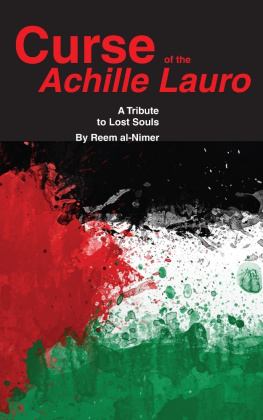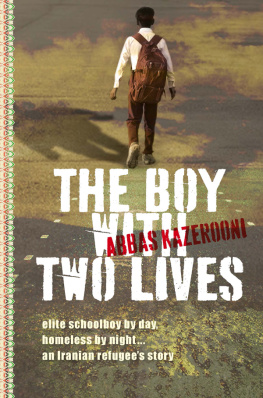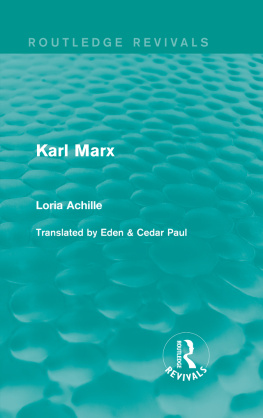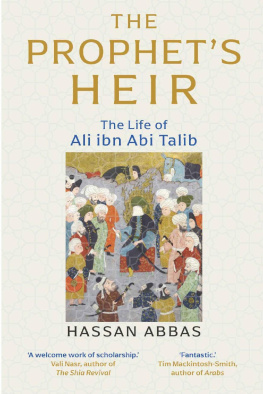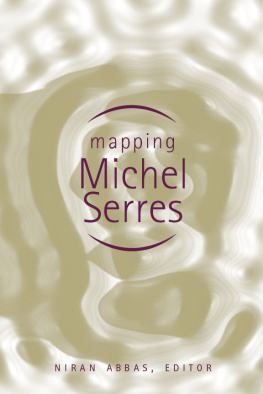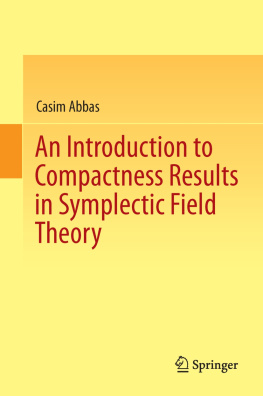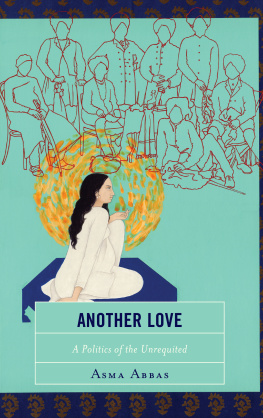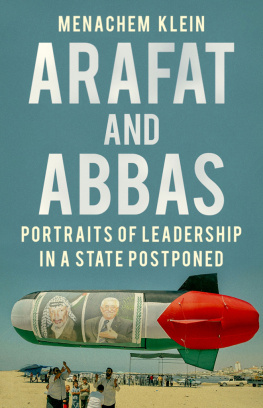On War
Although I was once an active member of the Palestinian resistance and the wife of a Palestinian commando, I have to admit: I hate war. I cannot imagine losing more friends and family in yet another battle. And, late at night, I imagine that our opponents in these conflicts share my grief. I have to admit that they, too, have lost children, women, and young men in the prime of life.
On Peace
Both Arabs and Jews are human beings. Both are entitled to a dignified life. The time has come when this bloodshed must stop. We all have lives. We have families and homes. We care about the future of our children and grandchildren. The end of the occupation and the termination of hostilities mean that Arabs and Jews will need to accept the idea of living alongside one another. We have done this before 1948, and we can do it again. It is not impossible. The experts can decide on the details of a solution. What I know is that we need to accept one another, one person to the next. This is the foundation. This is the basis of peace.
Reem al-Nimer
I have asked my friend Sami Moubayed to explain how my book came to be written. See his sketch, A Trendy Caf near Rue Hamra.
At the most literal level, let me say that I wrote Curse of the Achille Lauro to tell about the interplay of two very different Palestinian lives. My husband Abu al-Abbas came up hard in a refugee camp in Damascus while I was from a wealthy family in Beirut. I also wanted to sketch a portrait of my husband. He was more complex than the hero described in the Arab newspapers or the villain who was portrayed in the western media. And, when it came to the Achille Lauro, I wanted to repeat his apology for a military operation gone awry:
What of Leon Klinghofer? my husband asked. What did he do wrong? The war between Israel and Palestine has waged hot and cold for nearly seventy years. Our differences with the Israelis should have been resolved long ago. As my husband phrased it, The time for fighting is past.
Reem al-Nimer
I FIRST MET REEM AL-NIMER AT A TRENDY CAF wedged between the American University of Beirut on the bluff above the Mediterranean and
Lebanons famous Hamra Street. This was in September 2012.
I am an historian and political commentator. Reem is well known in the Arab world as the wife of Abu al-Abbas, a prominent Palestinian general who died in 2004. I am from Damascusand my country was up in flames. She is from Beirutand her native Palestine had been on fire for sixty-four years. Still, the point of our talk was not war... but peace. Reem wanted to tell her story, a long and quirky tale of her journey from youth to wisdom. Along the way, she grew from an earnest desire to oppose Israeli military action with force to an understanding that war, in the end, does not create the desired result. It takes reconciliation to make peace.
Even though Reem al-Nimer had lived through eleven wars, she nevertheless spoke with high optimism. She had seen horrible things, she had lost friends and relatives, and yet she was willing to put the past in its place and to turn a new page in life. Her eyes sparkled and she seemed certain that some-time soon there would be peace in the Arab world. Her outlook required the ability to look past the current obstacles. It required confidence, and courage. Reem al-Nimer had all three.
Reem could see that one day Palestinians and Israelis would work together, pray together, struggle together, go to jail together, stand up for freedom together. The future belonged to both peoples, in concert. Before any of this happened, of course, Palestinians and Israelis needed to stop killing one another. Reem thought that normal, healthy national pride had mutated into patriotic rhetoric that trapped the region in a cycle of violence and revenge. The impulse for martyrdom among Palestinians and cachet of military prowess among Israelis had been encouraged to the point of national self-destruction. As Reem told me, Its better to live, than to die, for your country!
Reem had a project in mind: She wanted to create a book about her life and her husbands life. She asked me to serve as her writing coach, and I agreed. We spent nearly two years taking the world apart and then putting it back together. We discussed everything from the right of return of the Palestinians to Muslim history to Buddhist thought. As an Arab living in a country bordering Palestine, I have always been close to the Palestinian cause and have written extensively about Yasser Arafat. As Reem began to unfold her story, I found that Arafat played a central role. Reem knew Arafat well.
She had served in Arafats Fatah organization under the umbrella of the PLO (Palestinian Liberation Organization). I also learned that Reem had served in a succession of other Palestinian groups, had lived through the Israeli siege of Beirut, and had witnessed or participated in the major events of Palestinian history since the 1960s.
Reem grew from a carefree teenager with a rich dad into an activist, a commando, and the wife of a prominent military leader. After her husbands death in 2004, she devoted the bulk of her time to helping her children make the transition into the working world, to establishing homes, to beginning families. And now she would like to do what she can to help Palestinians and Israelis overcome their differences and live with one another.
The role of mediator was a familiar one for members of Reems family going back at least two centuries. Prior to World War I, the al-Nimers had helped locals deal with their Ottoman overlords. This was the Ottoman system: local rule through notable families. The al-Nimer family home in Nablus performed many of the functions we now associate with city hall, the county court, and the local unemployment office.
In 1986, Zafer al-Masri, her uncle on her mothers side, was assassinated in Nablus while acting as mediator. Zafer was an official in local government who served ordinary people in his area. Most of their problems could not be resolved without the consent or acquiescence of the Israeli occupation authorities. The situation left Zafer exposed. He knew this, but he also knew that residents needed the help of local government to survive.
Reem is just beginning to develop a public role as a peace advocate and her ideas are still being formed. Yet the kernel of her thinking is bedded in rich soil: her familys tradition of cooperation, problem solving, and mediation.
As she enters the public arena, Reem faces what seems an impossible obstacle. Her husband, after all, was the one who planned the Achille Lauro operation that failed so spectacularly in 1985. The operation became notorious and, adding to the irony, this rather awkward and regrettable incident has been kept alive in public thought as the subject of an opera: John Adams The Death of Leon Klinghoffer. The recent plan of the Metropolitan Opera to perform this opera in New York with simulcasts to movie theaters around the world provoked protest among Jewish groups. The New York Times ran a feature article, an editorial, and a fierce letter to the editor by the Klinghoffer family in response to the editorial. In the meantime, Palestinians responded with... silence.
The military operation, as planned by Reems husband, used the Italian cruise liner simply as a means to transport four commandos to an attack on a military target at the Israeli port of Ashdod. The point of the operation was to elicit public sympathy for the Palestinian cause as four young men battled and presumably lost their lives to the far superior Israeli forces. Instead of self-sacrifice, however, what resulted was the death of a tourist taking a cruisea man who just happened to be elderly, wheel-chair bound, an American, a Jew, the member of a prominent and politically active family, and a resident of New York, the media capital of the world.
Next page
